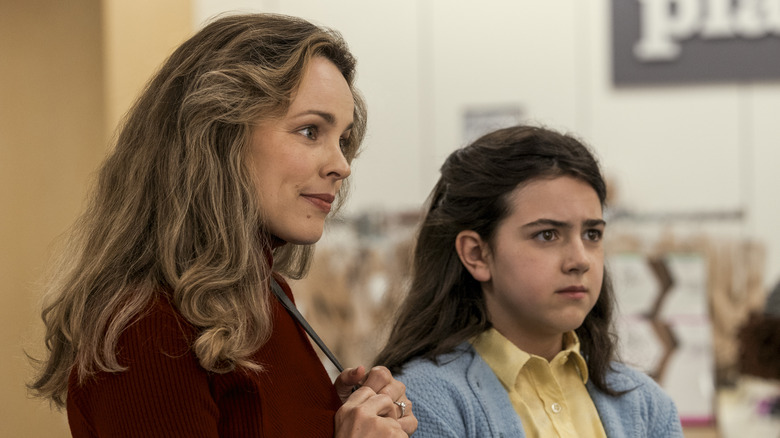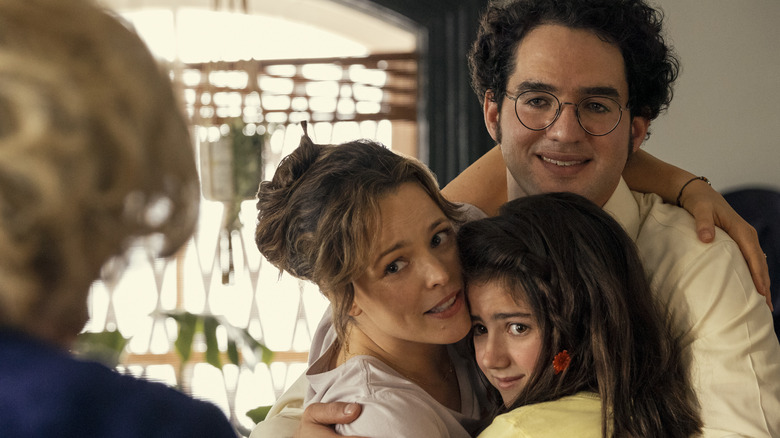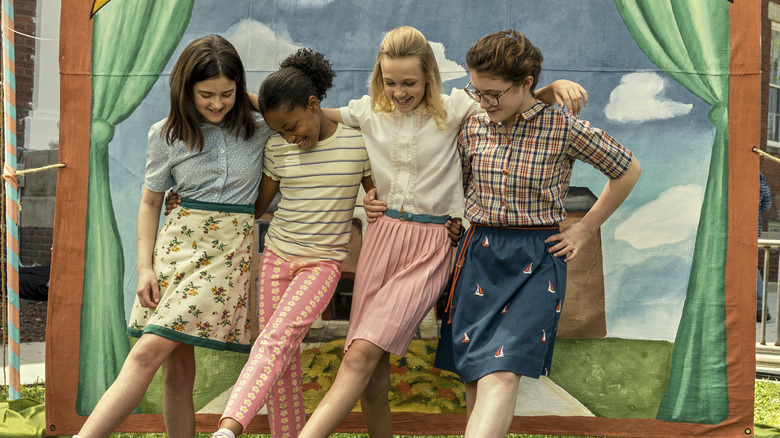Are You There God? It's Me, Margaret Review: A YA Classic For A New Generation
- Abby Ryder Fortson is a delight as Margaret
- Empathetic depiction of both kids and adults
- Universally relatable coming-of-age story
- Period setting makes some references outdated and difficult for younger audiences to relate to
If you were — or are — a pre-teen girl, chances are, you've read at least one Judy Blume book in your lifetime. "Are You There God? It's Me, Margaret," is one of her most famous, both for the impact it has had on young readers over the course of multiple generations, and the controversy it's inspired over its willingness to speak openly about periods, female puberty, and thorny issues of religion. The challenge of creating a cinematic adaptation of the book is in taking a coming-of-age novel from 1970 and making it relevant to a generation of kids over 50 years later. "Are You There God? It's Me, Margaret," succeeds, proving that Blume's seminal novel taps into something universal about growing up, aided by a star-making turn from Abby Ryder Fortson in the lead role of Margaret.
When 12-year-old Margaret (Ryder Fortson) arrives home in New York City after a summer away at camp, she's met with a pretty significant surprise. While she was gone, her parents (played by Benny Safdie and Rachel McAdams) decided to move the family to suburban New Jersey, where her father recently got a new job. It'll be great, they promise her. And initially, it is. Margaret quickly falls in with a group of neighborhood girls her age, led by the domineering Nancy Wheeler (Elle Graham), who insists that her friends follow a strict set of rules: They can't wear socks with their shoes, and they all have to get a bra, regardless of whether or not they actually need one. Margaret is eager to please, and happy to have found new friends so quickly. But as puberty rushes toward them like a freight train, hitting each at different points, things become much more complicated. Soon, Margaret begins to fear that everyone is growing up faster than her.
The warmth of Margaret and her parents
"Are You There God? It's Me, Margaret" is defined by Abby Ryder Fortson's performance as Margaret; she brings immense warmth and likeability to the character. Margaret spends much of the film trying to figure out who she is, but even at her most rootless, she's unfailingly genuine and empathetic. Her relationship with religion is also reflective of her search for identity: The daughter of a Jewish father and a Christian mother who made the active decision not to push Margaret into either faith, Margaret's efforts to find out which religion makes her feel close to her concept of God is simply another way in which she is trying to find a place where she belongs.
"Are You There God? It's Me, Margaret," goes to great lengths to develop both of Margaret's parents — especially her mother, Barbara — far beyond what many other YA films would attempt. We see Barbara struggle to adjust to being a stay-at-home mom, which entails keeping up with the other picture-perfect suburban wives while also making time for her own artistic pursuits. The fact that their apartment in New York was filled to the brim with personality while she spends three-quarters of the film trying to pick out a sofa for their new house isn't a coincidence: She has lost her sense of identity. By making Margaret's parents feel like real people, this film emphasizes the realism of Judy Blume's classic novels. They don't impose arbitrary distinctions between childhood and adulthood: It's all a continuum on the same journey. Though many have objected to this approach, how on Earth are kids supposed to be prepared for life if everything is constantly shielded from them?
Relevance to Gen Z audiences
"Are You There God? It's Me, Margaret," will likely strike a chord with older audiences — not only did they probably read the book as kids, but the film is also very much in the vein of "Now and Then" and "Stand By Me." But will the production resonate with young audiences today? The choice to keep this a period piece — set in the same decade that the original book was published — means that the filmmakers didn't have to go to great lengths to modernize certain elements of the story. Margaret still has to contend with comically gigantic pads that are about three inches thick, for example. But does its commitment to the 1970s setting impact its ability to reach viewers growing up in a totally different cultural landscape? Can a generation of digital natives raised on social media relate to Margaret and her friends?
It's a credit to the directorial talents of Kelly Fremon Craig and the performances of the main cast — as well as Judy Blume's original source material — that the answer is yes. The central themes of "Are You There God? It's Me, Margaret," are universal. Kids in the 2020s may be filming dances or makeup tutorials on TikTok rather than doing chest exercises while shouting "We must, we must, we must increase our bust," but it's all part of the same thing: Pre-teens feeling desperate to grow up while being simultaneously terrified of what that entails. This may be a simple, straightforward adaptation of a YA classic, but it hits all the right notes for nostalgic adults and tumultuous pre-adolescents alike.


